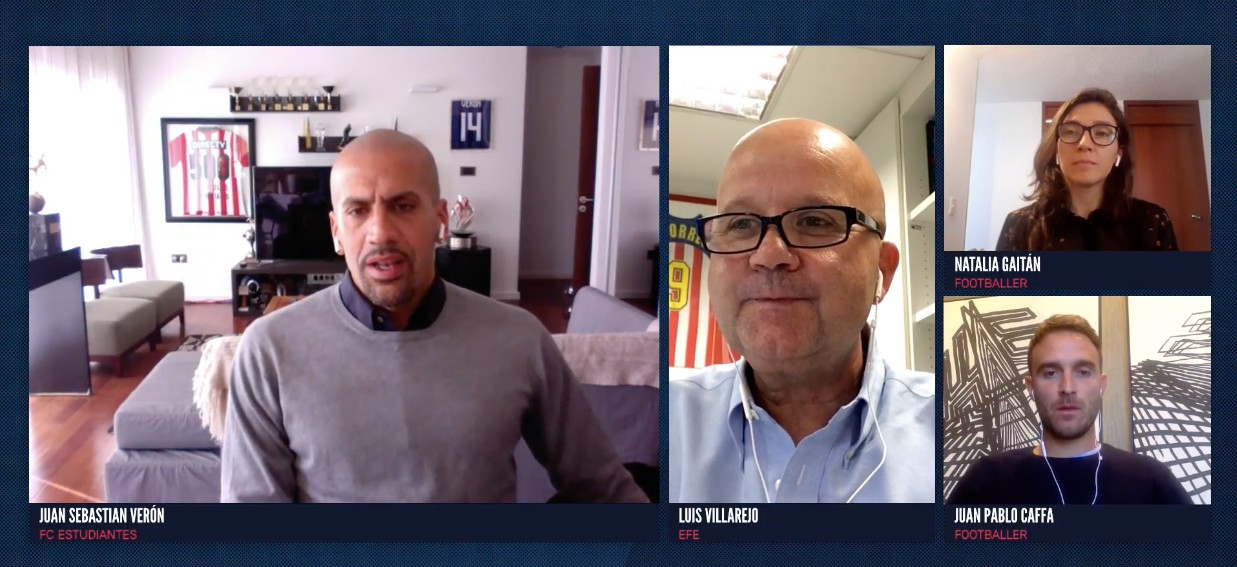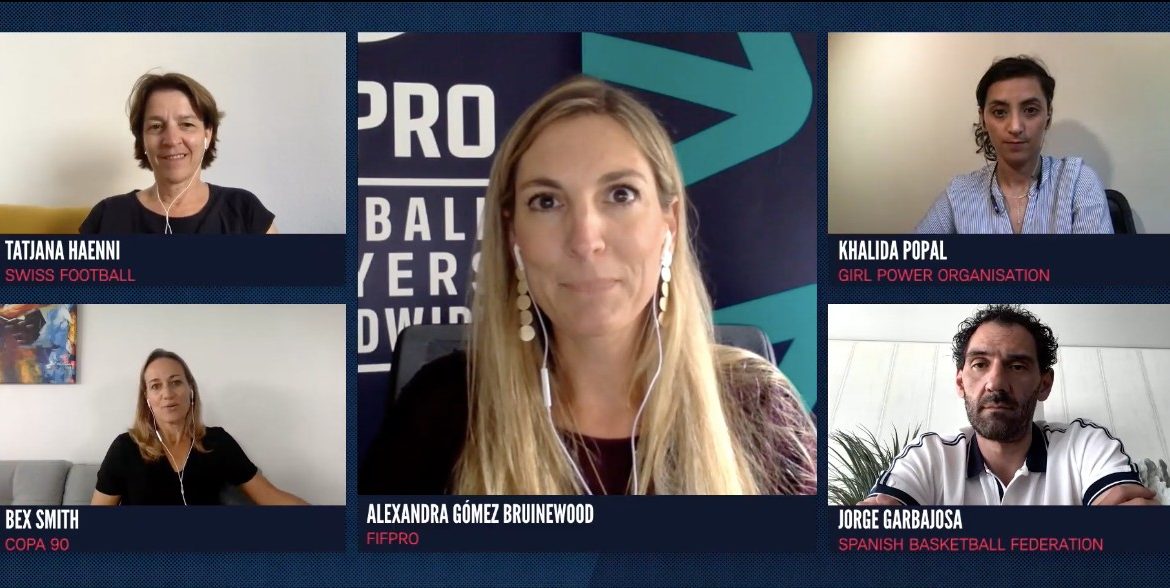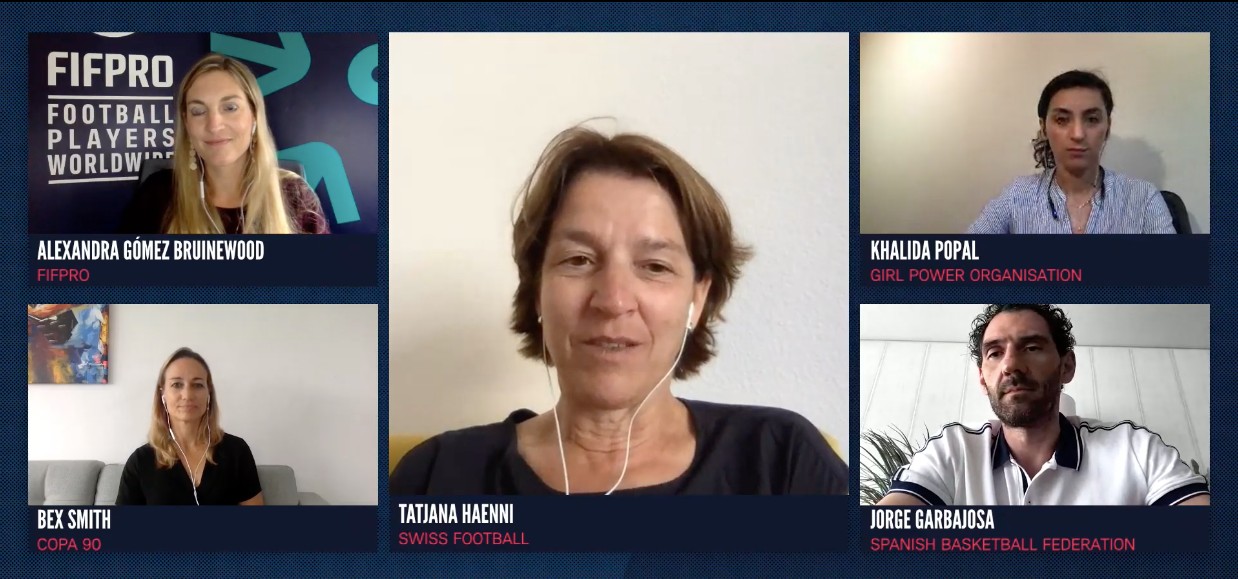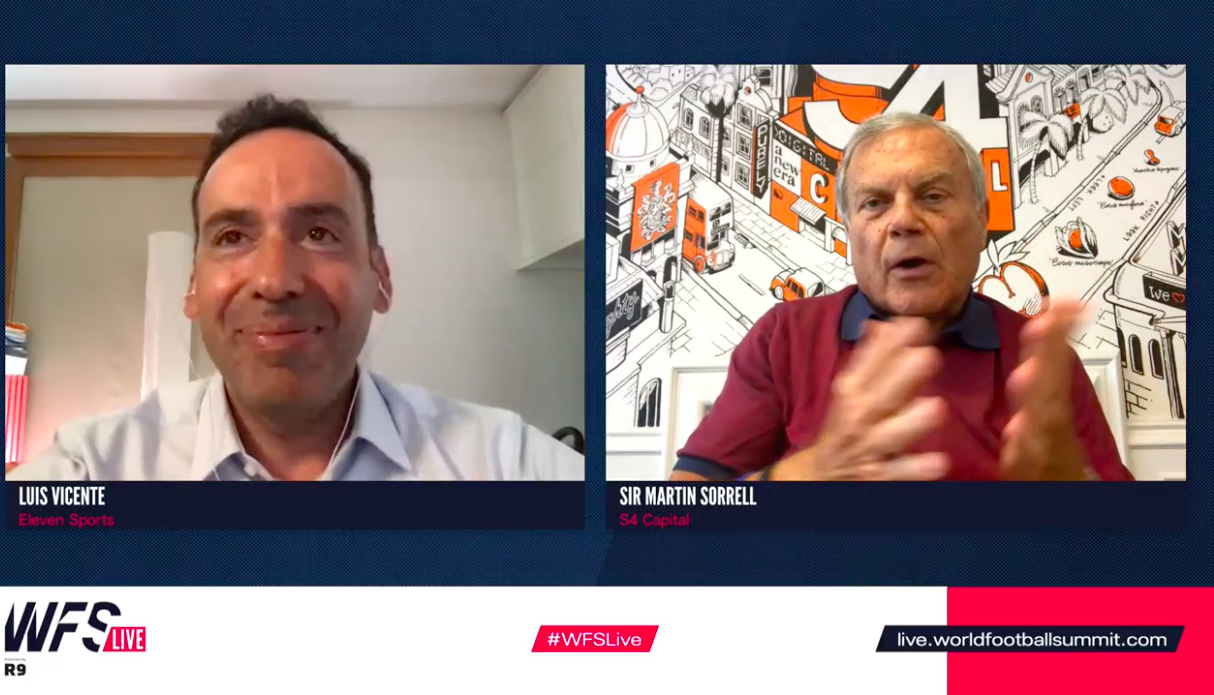Day 3 of WFS Live powered by R9 saw former and current football legends take the virtual stage to address both on the field and both the field topics. Rebecca Smith and Khalida Popal discussed the best way for women’s football to tackle Covid-19 and continue its growth path during a panel sponsored by Visa, Juan Sebastián Verón explained how a good education boosted him from the youth teams of Estudiantes to the Chairman’s office in a panel sponsored by Johan Cruyff Institute, whilst Ronaldo and Juan Mata shared their experiences as social activists in a panel sponsored by Santander.
Ronaldo Nazário on how Covid-19 will impact football for good organisations:
“Covid-19 is going to make a big impact on foundations and NGOs because the companies that fund these organisations have suffered a big blow and we know that whenever there is a crisis the first thing they cut is donations. What we have to do as foundations is to find solutions, find ways of proposing new projects. With Fundação Fenômenos we are developing channels and platforms to try to identify where people are suffering most in Brasil and do our best to provide assistance. It’s not what we normally do, but it is what is required. There are a lot of communities in Brasil that have no assistance and we have to provide them with an opportunity to overcome this crisis with dignity.”
Juan Mata on players becoming increasingly involved in social causes
“There are a number of reasons that explain why athletes’ voices are becoming more influential. Social media has become a very important tool for professional footballers and athletes in general, and, as we are seeing with all the young players joining Common Goal lately, players are realising that when you are a footballer you have a very powerful platform. When you state your views, people listen, and a lot of players are starting to use that power to speak up for social causes. I think this is already a trend, and I think that it is going to grow even more in the coming years. More players will realise the power they have to reach people, because in that sense nothing matches the power of sports and football.”
Juan Sebastián Verón (Club Estudiantes) on the need for clubs to ensure their player’s education
“At Estudiantes we use football as a vehicle to educate kids. We receive kids from all types of places, some of them with important needs, and it’s important that we ensure that when they leave they have finished secondary school, which is the minimum needed to get a job. I think that’s what the club has to do, and I think the kids have the right to receive that education. They’re going to invest around 10 years chasing a dream that may never come true. If that happens, I want them to know that the club gave them the chance to finish school and go back home with something. If they get to be players, that will be excellent, but if they don’t make it we want them to have another opportunity in life.”
Tatjana Haenni (Swiss Football Federation) on the need for football organisations to talk less and do more
“If you talk to male players, they are usually super supportive and helpful. If you talk to people in society, they are open to women sports. If you talk to people in the economy they see the benefits as well. It’s developing everywhere, but where we still struggle is in places in which changes could be made immediate and that’s sports organisations. These organisations quite often in my opinion do a bit more talking than actually doing. They could really reinforce the case of women’s sports much quicker and put the right structures in place.”
Toni Ordinas (Lillestrøm Sportsklubb), on how Bepro is revolutionising data analysis in football
“During more than 20 years I had the feeling that I just watched the matches, didn’t analyze the matches. With Bepro this has changed. For the first time I have the chance to see what happens on the pitch, what players do and how they interact. In youth football it’s important that we not just look at the physical parameters but also the fundamentals, this is the most important thing when you are developing a player.”
Mic Conetta (Arsenal FC) on using data to build fan engagement
“Clubs have to balance the amount of information that is available to them and really focus on what part of that information is going to drive and build out that fan experience and nurture and develop the relationship with the fans, because you can go down a lot of rabbit holes chasing a lot of data that won’t deliver much value back to either the club or the relationship with the fans.”
Iván Codina (LaLiga), on how LaLiga kept its fans engaged during the Covid-19 lockdown
“At the beginning our main focus was definitely to show our commitment with the fight against Covid-19, specially with the dramatic situation that we had in Spain. That was our main focus. After that we were also able to provide content around the protocols for clubs to resume training and the restart of competitions, and also on all the initiatives that our clubs carried out around the restart of LaLiga.”
Ale Xavier (Desimpedidos) on how Covid-19 is forcing media companies to reinvent themselves
“In the pandemic, more than ever, we need to reinvent ourselves, produce different content related to sports and leverage tools that already existed but we didn’t know how to use. We also need to make the best use of all available platforms.”
Dani Alves (Brasil National Team) on the need to come together to make real impact
“Individual voices don’t make much of an impact. They need to be together and in different parts of the world. All lives matter. We are in 2020 debating about the same things and haven’t evolved yet. We have to position ourselves as humans and not as football players or a sports athlete in general.”





